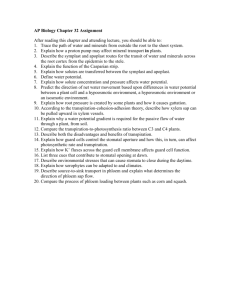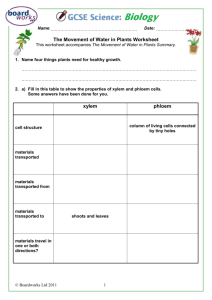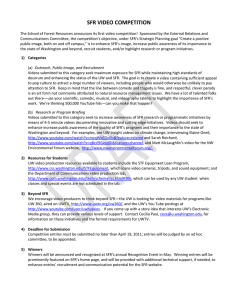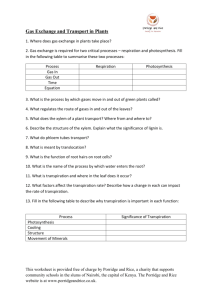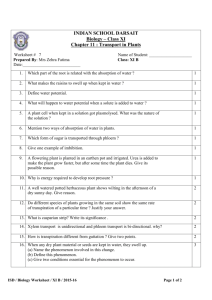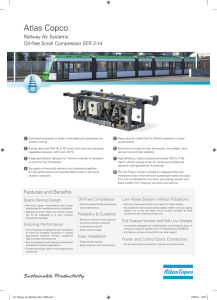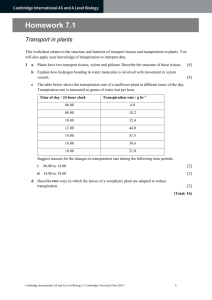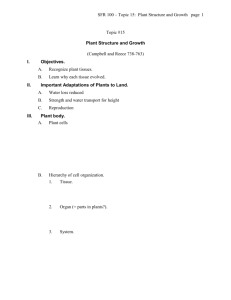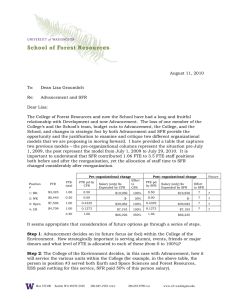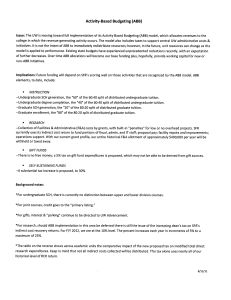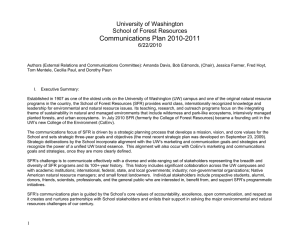Topic 16 - FES 100
advertisement
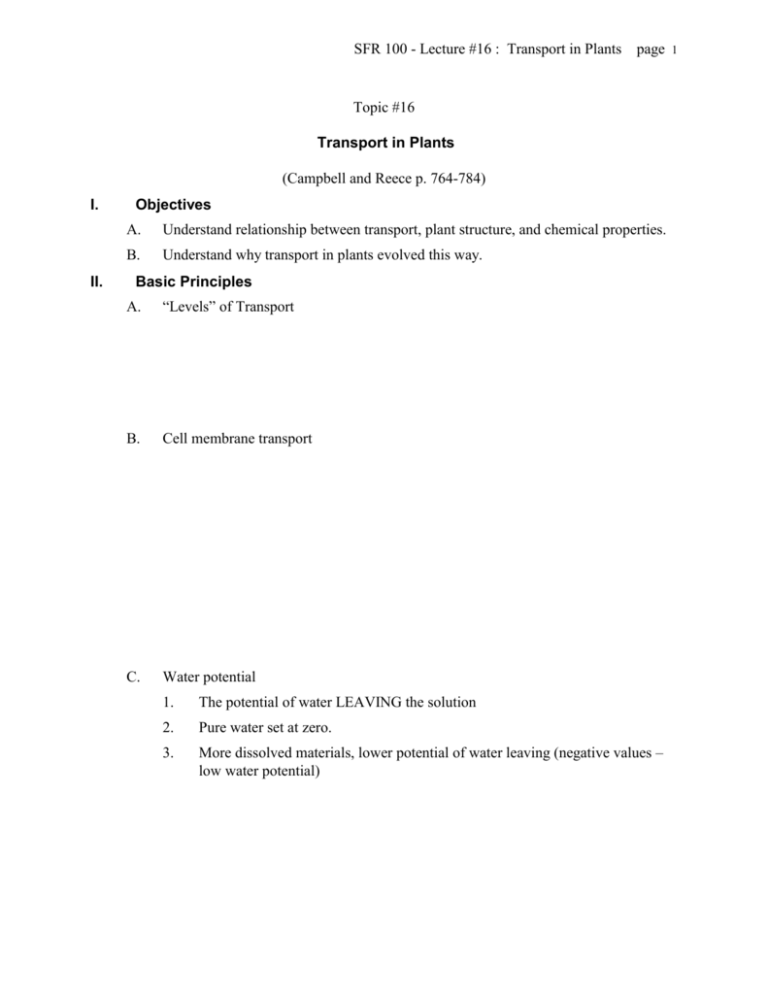
SFR 100 - Lecture #16 : Transport in Plants page Topic #16 Transport in Plants (Campbell and Reece p. 764-784) I. II. Objectives A. Understand relationship between transport, plant structure, and chemical properties. B. Understand why transport in plants evolved this way. Basic Principles A. “Levels” of Transport B. Cell membrane transport C. Water potential 1. The potential of water LEAVING the solution 2. Pure water set at zero. 3. More dissolved materials, lower potential of water leaving (negative values – low water potential) 1 SFR 100 - Lecture #16 : Transport in Plants 4. page More physical pressure, higher potential of water leaving D. Turgor pressure E. Materials flow through plant cell compartments F. Bulk flow – water gets pulled or pushed through cells (cell does not need to expend energy) 2 SFR 100 - Lecture #16 : Transport in Plants III. Absorption in Roots. A. Structure. B. Absorption 1. Need contact with water film on soil particles 2. Initial entry by apoplast 3. Must enter synplast 4. After endodermis page 3 SFR 100 - Lecture #16 : Transport in Plants IV. Transport in Xylem. A. Sap. = B. Force needed. C. Root pressure. D. Transpiration theory. 1. Evaporation and Sun Energy. 2. Transpiration 3. Increase concentration in mesophyll. 4. Osmosis. page 4 SFR 100 - Lecture #16 : Transport in Plants V. 5. Cohesion and pull. 6. Adhesion. 7. Stomata and guard cells. Guard Cells and Stoma A. Stoma need to open B. Stoma need to close when soil water insufficient to replace transpiration lost C. Mechanism page 5 SFR 100 - Lecture #16 : Transport in Plants VI. Transport in Phloem. A. Translocation. B. Source-sink. C. 1. Source: 2. Sink: Pressure flow or mass flow hypothesis. 1. Active transport of sucrose into sieve tubes. 2. Mass flow to sink. page 6 SFR 100 - Lecture #16 : Transport in Plants VII. Summary A. Five steps. 1. 2. 3. 4. 5. VIII. Adaptations A. Leaf - Photosynthesis, water usage control B. Xylem - supports height growth C. Phloem page 7 SFR 100 - Lecture #16 : Transport in Plants IX. Key Terms. Water potential Turgor pressure tonoplast cytosol plasmodesmata apoplast synplast Bulk flow Absorption endodermis Casparian strip Sap Root pressure guttation Evaporation transpiration cohesion adhesion Stomata guard cells Pressure flow hypothesis Mass flow hypothesis translocation source sink page 8
